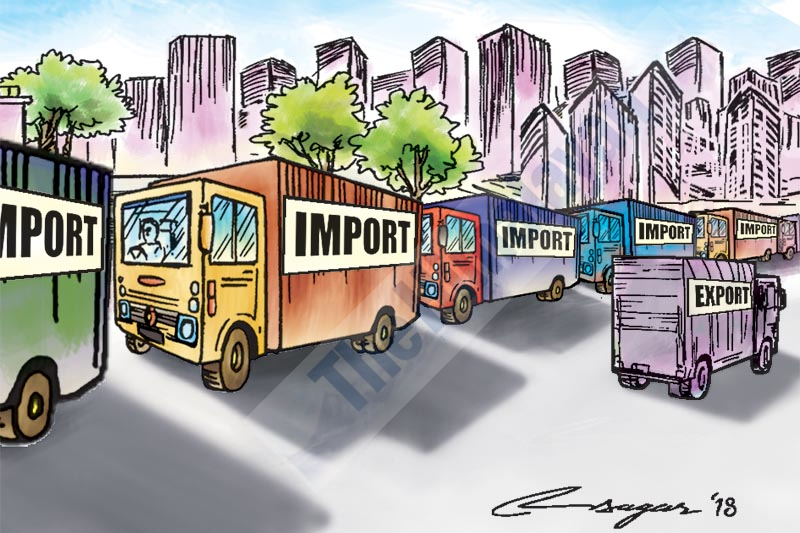Govt mulls higher import duty on luxury goods
Kathmandu, June 12
A national work plan recently endorsed by the government to address the ballooning trade deficit of the country has envisioned higher import duty on luxury goods and raising country’s production base.
The work plan states that the government will revise import taxes and excise duty on goods like mobile phones, television sets, gold, biscuits, wires, transformers, furniture, cosmetic items and dried fruits, among others, within six months to one year. Similarly, the government will also set minimum quality standards for all types of imported goods in the country within next two years.
Amid slow trade of Nepali goods with export potential as identified by the Nepal Trade Integrated Strategy (NTIS), the government aims to raise the export of NTIS products like footwear, yarn, carpet and pashmina by 50 per cent within next two years. In a bid to materialise this plan, the national work plan states that the government will prepare profiles of these products and promote them in the international market.
To ensure that Nepali industrial standards get proper recognition in the international market, the government will also sign mutual recognition agreement (MRA) with five major trading partner nations of Nepal, as per the work plan.
Within next two years, the government also plans to promote the production of goods like sugar, cement and pharmaceuticals and substitute their import by up to 80 per cent.
Though the government had made it mandatory for public offices to consume Nepali products over imported products as much as possible years ago, the work plan has acknowledged that the policy has not been implemented properly and that the government will give due priority to implement it within October.
Similarly, the government also plans to set up processing industries across different areas to promote production of export-potential goods, like ginger, cardamom, tea and herbs.
The government has also said that it will prepare province-wise profile of different export-potential products within one year and encourage industries to produce and export such products.
With the intention to promote the export of Nepali gold and silver jewellery, the government plans to start locker facility at customs offices.
Likewise, the government has said it would encourage banks and financial institutions to prioritise providing subsidised loans in the agriculture sector to promote the production of vegetables, milk products, poultry and meat items.
Meanwhile, the work plan also envisions setting up industrial estates across all provinces and operationalising planned special economic zones (SEZs) within next three years.
However, the private sector has said that along with introducing such policies and work plans, the government should focus on their implementation.
“Rather than just setting such targets, the government should adopt and introduce measures to make Nepali goods competitive in the foreign market. High production cost of Nepali goods is the major reason for our goods being unable to compete in the international arena,” said Hari Bhakta Sharma, former president of the Confederation of Nepalese Industries (CNI).






